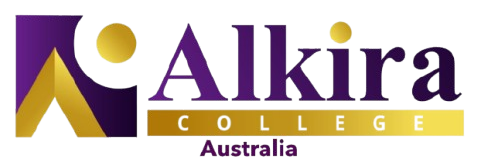By Dr Mathew
AI, Automation & Anxiety: Addressing Job Loss Fears as a Psychosocial Hazard
As AI and automation reshape workplaces, job security fears are rising. Learn how to manage these psychosocial hazards and support employees through change.
From automated workflows to AI chatbots and predictive analytics, digital transformation is accelerating. While these technologies promise efficiency and innovation, they also bring an uncomfortable reality for many employees: job uncertainty, role redundancy, and fear of being replaced.
The result? Rising anxiety, disengagement, and psychological distress — particularly among mid-career professionals and frontline staff. This fear of job loss due to AI and automation is more than a morale issue. It’s a growing psychosocial hazard that affects employee wellbeing, team cohesion, and organisational performance.
“Organisations that ignore the psychological impact of change risk losing more than just talent — they risk culture, trust, and resilience.”
The Link Between Technology, Job Insecurity, and Psychological Health
According to a 2023 global survey by Deloitte, 61% of workers reported concern that automation or AI could impact their role in the next 3 years.
Under WHS laws, employers have a legal and ethical obligation to manage risks to psychological health — including change management and future of work anxieties.
How Job Insecurity Becomes a Psychosocial Hazard
- Uncertainty Fatigue: Constant speculation about job security can drain focus, motivation, and emotional energy.
- Reduced Engagement: Employees may disengage to protect themselves emotionally from anticipated loss.
- Toxic Culture Shifts: Increased competition, fear-based behaviours, and siloed teams can emerge in environments of unchecked change.
- Resentment & Distrust: Lack of communication from leadership breeds cynicism and fractures loyalty.
These aren’t just emotional responses — they directly impact absenteeism, presenteeism, turnover, and productivity.
How Leaders Can Address AI-Driven Job Anxiety
- Open the Dialogue
Proactively communicate the organisation’s strategy around AI and automation. Transparency reduces uncertainty and builds trust. - Offer Upskilling & Transition Support
Invest in training and cross-skilling programs that help employees see themselves as part of the future workforce. - Acknowledge the Emotional Impact
Train managers to have empathetic conversations. Recognise that fear, anxiety, and resistance are normal responses to change. - Include Psychological Risk in Change Management
Build psychological health and safety considerations into any transformation roadmap. Treat employee sentiment as data. - Involve Teams in Innovation
Invite employees into solution-building conversations. Give them a voice in shaping how technology is implemented.
The Holistic Approach: Supporting the Whole Person in Times of Change
Psychosocial support isn’t just about coping — it’s about building adaptability, resilience, and forward momentum.
- Emotional wellbeing: Offer access to counselling and stress management programs.
- Cognitive support: Provide clear information and learning pathways.
- Social connection: Promote team-based initiatives and shared problem-solving.
- Purpose alignment: Help individuals reconnect with their strengths and career aspirations.
Conclusion:
The fear of being replaced by technology is real — but the solution lies in human-centred leadership. When employers proactively address AI-related job anxiety as a psychosocial hazard, they not only reduce risk but unlock the full potential of their people.
Ready to Support Your Workforce Through Change?
Explore our training in Managing Work-Related Psychological Health and Safety or Contact Us to build a culture of transparency, trust, and transformation.

